Adherence
Adherence refers to the extent to which a person's behavior - such as taking medication, following a diet, or executing lifestyle changes - corresponds with agreed recommendations from a healthcare provider. It is an important factor in the success of medical treatments and interventions.
Factors Influencing Adherence
- Patient-related factors: These include the patient's understanding of their condition, motivation to adhere to the treatment, and their ability to integrate the treatment into their daily routine.
- Condition-related factors: The nature of the condition, its symptoms, and the perceived benefits of treatment can influence adherence.
- Treatment-related factors: The complexity of the treatment regimen, potential side effects, and the mode of administration can impact adherence.
- Healthcare system-related factors: Access to healthcare, quality of patient-provider communication, and support systems available to the patient play a role in adherence.
Strategies to Improve Adherence
- Education: Providing patients with clear and understandable information about their condition and the importance of treatment can improve adherence.
- Support: Offering emotional and practical support to patients, such as reminders for medication or assistance with lifestyle changes, can enhance adherence.
- Simplifying regimens: Minimizing the complexity of treatment regimens and reducing the frequency of dosing can make adherence easier for patients.
- Communication: Open and effective communication between patients and healthcare providers can address concerns and improve adherence.
Impact of Non-Adherence
Non-adherence can lead to treatment failure, worsening of symptoms, progression of the disease, and increased healthcare costs. It can also contribute to the development of drug resistance and decreased trust in the healthcare system.
Study Guide
- What is adherence and why is it important in healthcare?
- Identify and explain the factors that influence adherence.
- Describe strategies that can be employed to improve adherence.
- Discuss the potential impact of non-adherence on patient outcomes and healthcare systems.
Understanding adherence is crucial for healthcare professionals and patients alike, as it directly impacts the effectiveness of treatments and interventions.
.◂Science Worksheets and Study Guides Eighth Grade. The Digestive System & Nutrition
Study Guide The Digestive and nutrition
The Digestive and nutrition  Worksheet/Answer key
Worksheet/Answer key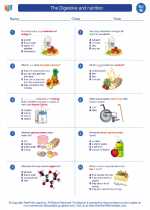 The Digestive and nutrition
The Digestive and nutrition  Worksheet/Answer key
Worksheet/Answer key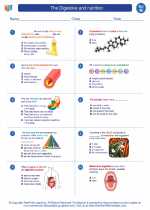 The Digestive and nutrition
The Digestive and nutrition  Worksheet/Answer key
Worksheet/Answer key The Digestive and nutrition
The Digestive and nutrition  Vocabulary/Answer key
Vocabulary/Answer key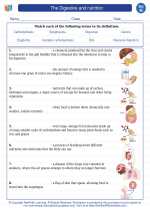 The Digestive and nutrition
The Digestive and nutrition  Vocabulary/Answer key
Vocabulary/Answer key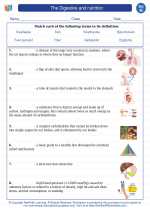 The Digestive and nutrition
The Digestive and nutrition  Vocabulary/Answer key
Vocabulary/Answer key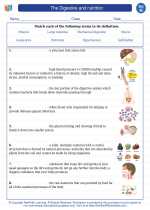 The Digestive and nutrition
The Digestive and nutrition  Vocabulary/Answer key
Vocabulary/Answer key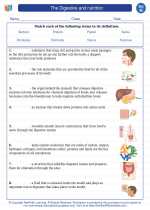 The Digestive and nutrition
The Digestive and nutrition  Vocabulary/Answer key
Vocabulary/Answer key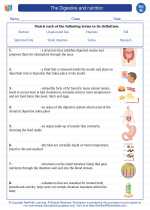 The Digestive and nutrition
The Digestive and nutrition 

 Worksheet/Answer key
Worksheet/Answer key
 Worksheet/Answer key
Worksheet/Answer key
 Worksheet/Answer key
Worksheet/Answer key
 Vocabulary/Answer key
Vocabulary/Answer key
 Vocabulary/Answer key
Vocabulary/Answer key
 Vocabulary/Answer key
Vocabulary/Answer key
 Vocabulary/Answer key
Vocabulary/Answer key
 Vocabulary/Answer key
Vocabulary/Answer key

The resources above cover the following skills:
Reading Standards for Literacy in Science and Technical Subjects
Craft and Structure
Determine the meaning of symbols, key terms, and other domain-specific words and phrases as they are used in a specific scientific or technical context relevant to grades 6-8 texts and topics.